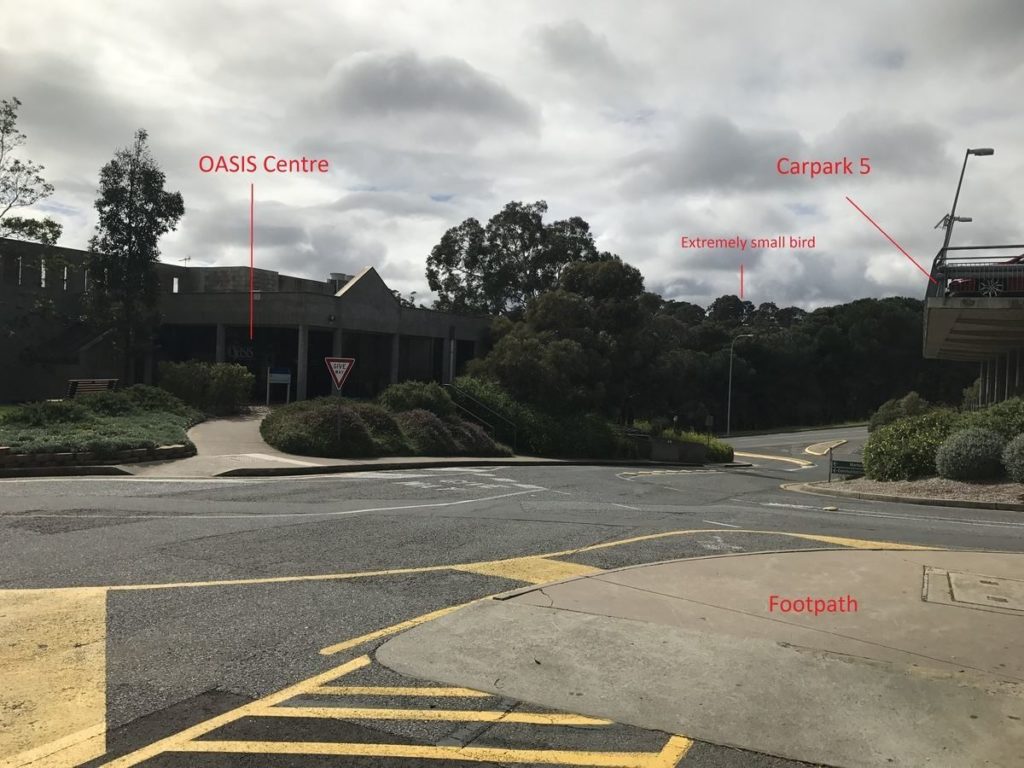
Studyology is a drop-in support group for students who want to hone their study skills.
This might include getting on top of procrastination, finding that inner motivation, or tackling the perfectionism demons.
It is run every Tuesday during term time from 10.00am to 11.30am at OASIS. We will also be running during the exam period this semester (6th and 13th November)
I wrote a post a while back giving an update on how the sessions had been progressing and some of the interesting topics that had been emerging. It is a good post to re-visit if you want to learn more about the session format and goals.
In this post, I wanted to explore briefly some interesting ideas that have come out of recent sessions.
“I need to learn more before I can get started on the assignment”
This is a common experience. Students delay getting started on assignments because they don’t feel they know the topic or the process well enough to write anything of any worth.
It’s a tough one to overcome because it is logically, partly true – you do need to understand the topic well before writing about it.
The trap is that you may never actually feel totally qualified to answer the question. There are always more papers you can read, more you can learn on a topic.
The keys to overcoming this trap are to:
- Start early (to be honest this is always a good strategy), so you have plenty of time to do ‘required readings’, as well as chase up other readings that you think will be helpful.
- As you read, take notes. Type these notes into the document that will become your final assignment. These notes will become the basis of your final assignment.
- Intersperse periods of focused writing between reading/note-taking. For example, if you spend 1 hour doing some reading/note-taking on the topic, spend the next hour trying to organise those ideas and notes into the format of the final assignment – that is, dedicated writing periods.
- Remember that a piece of writing develops iteratively, from notes and concepts, to a preliminary structure, to early paragraphs and then to 2nd and 3rd drafts. You won’t write the perfect piece first up (or very rarely does this happen).
Think of university study as a series of sprints, rather than a marathon
Given the length of a degree (3+ years), it is tempting to think of it as a marathon – a herculean academic effort that requires us to soldier on to the end (graduation), which can feel like a long way away.
The problem with this headset is that it doesn’t encourage periods of rest and recuperation along the way. You don’t typically see marathon runners take a 20-minute nap in the middle of the marathon (or at least not deliberately).
Instead, think of university study as a series of sprints, followed by periods of rest and recuperation. The sprint periods might be the semesters, in which you really focus your attention and time on your studies. The rest periods are the mid-semester and mid-year breaks where you focus your attention on recharging.
On a smaller scale, your might see the weekdays as a 9-5 sprint, but the weekends as your rest periods.
This small shift in perspective can help you prioritise appropriate levels of rest and recuperation.
Make it a competition – but with yourself
University is a competitive environment. Academics are competing for funding, teachers are competing for resources and students are competing for ‘CV building experiences’.
Competitive environments work for some people but definitely not all. It is easy to get distressed comparing our own performance to that of our peers.
But it can also be beneficial to apply some pressure on yourself to improve.
To apply pressure, but in a less damaging way, mentally shift the competition away from static outcomes (i.e. did I get a better grade than my peers?) and instead focus on relative outcomes (i.e. did I do a better job of this assignment than I did the last one). Putting the emphasis on improvement and growth can provide a better point of competition if (for whatever reasons) you are starting with lower grades, on average, than your peers.
Use yourself as a benchmark and seek to improve on that with each assignment or exam.
Turning ‘tendencies’ into rules which hold you back
We know that science generally supports the idea that some people are ‘morning people’ and some people are ‘night owls”. We have differences in our body clocks that relate to when we feel at our most productive and alert.
A problem emerges however when we take these tendencies/preferences/differences and translate them into strict or inflexible rules.
For example, I am a ‘morning person’ and try to allocate as much morning time as I can to the more complex things that I need to do in my job (e.g. writing). This is a good thing and takes advantage of my natural body rhythms.
However I need to careful to not dismiss the possibility of working at other times of the day. The more I tell myself “I am useless after about 3.00pm”, the more likely I am to dismiss the idea of working beyond that time. In fact, I know from experience that I can still be very productive when doing work after dinner, and even just putting in an hour or two in the evening can drastically reduce my workload.
So pay attention to the rules you’ve constructed about your own productivity that might be holding you back. Perhaps you keep telling yourself that “I much prefer watching lectures online, rather than going to see them live”. But have you really tested this out? Perhaps you’d find that yes, you prefer them online, but going to see them live improves your memory for what is said.
The big role of anxiety
The emotion/feeling that most commonly derails students in terms of their study is anxiety.
Anxious about deadlines. Anxious about starting an assignment. Anxious about exams. Anxious about speaking in public. Anxious about falling behind.
Probably just reading those sentences makes you anxious.
Sitting underneath anxiety are a range of fears – fear of rejection, fear of failure, fear of being seen as an idiot.
A life that is ruled by anxiety is commonly a life ruled by avoidance. It is a natural human response and tendency to distance ourselves from the things that make us anxious. This made perfect sense when the things we feared were found mostly in the environment around us (e.g. predators, cliffs, poisonous plants). But that isn’t the case as much anymore.
Most of the things we fear now are found within us. We don’t want to feel like we’ve failed or been rejected or done something badly. Perhaps we fear that if we do badly or stuff up, that we will be rejected from the university, or our peers, or our family – and the prospect of not belonging and having a safe group to be a part of can be terrifying.
I generally emphasise two things when talking to people with anxiety in relation to their studies.
- Learn methods to bring down your level of anxiety. Anxiety is as much a physical response, as it is a mental response. The heart rate quickens, muscles get prepared for action, pupils dilate, blood pressure increases, adrenaline is released. Your body is prepared to run or fight. To counter this you are going to have to convince your body that ‘no thankyou, that isn’t the most helpful thing right now”. To do this you need to learn relaxation and/or mindfulness strategies and practice them regularly. Try one of these apps. I really have to emphasise that you will need to practice these techniques for them to be useful.
- Meaningfully confront the things that are making you anxious. All the things that you are avoiding or procrastinating on, are the exactly the things that you will need to do. You’ll need to draw up a timetable, schedule study time, do the readings, watch the lectures etc etc. But don’t be afraid to admit if you don’t really know how to do some of those things. Lots of people arrive at university and assume that everyone else knows how to study well, so they don’t want to embarrass themselves and admit they don’t. Don’t know how to study well? Read our guide. Don’t understand academic writing or stuff like referencing? Talk to the Student Learning Centre. Need someone to proof read your work? Use the Studiosity service. Asking for help is a much better solution than avoidance. You are at university to learn your topic/course, but you are also here to learn how to be a good student. The ability to study and learn will help you throughout your life, so take advantage of the services that are here to help you become a good student.
The power of hearing that other students are experiencing the same thing
One of the simple affirming experiences that a group like Studyology provides students is the experience of hearing that other students (some of whom are overall, doing quite well) struggle with the same things: procrastination, perfectionism, loss of motivation, feelings of being overwhelmed.
If you’ve been contemplating coming, but haven’t yet felt the little surge of courage to propel you there, just know that we’d love to have you along and we think you’ll find the experience a positive one.
It is a low pressure environment in which to discuss common study challenges. Even if you just want to sit quietly and hear about the strategies that other students are using to conquer their study foes, then that is fine. Perhaps just hearing that other students are dealing with similar issues will reduce some of that self-critical pressure that you’ve been putting on yourself.
Studyology is held in the big meeting room at OASIS on Tuesdays from 10.00am to 11.30am. OASIS is the building opposite carpark 5. It is this one.


